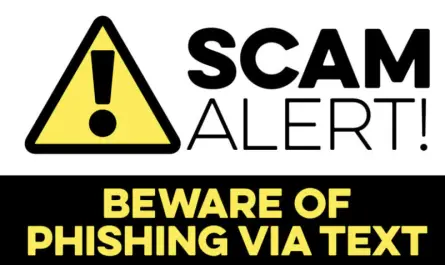Webroot Scam is the ongoing scam tactics that has been making wave over the internet. Did you receive any email from an unknown number claiming to be from Geek Squad? If yes, kindly ignore the message! It is a huge scam. This review uncovers the fraudulent activities of this scammers and offers tips on how to detect scam texts and avoid them. Read till the end.
Phishing (Email scams) and Smishing (Fraud through Text messages) are on the increase these days. Scammers are now coming up with several ways to defraud people on a daily basis. One of the ways they do this is by sending text messages to people prompting them to release vital information or even gaining access to their information without their knowledge. Receivers of such texts are therefore advised to always carry out due diligence before giving out any information about themselves.
What Is The Webroot Scam All About?
Webroot Scam is a email sent by fraudsters disguising themselves to be from Webroot, a company that provides internet security to people. The scammer may try to steal your sensitive personal information or money through some form of payment. They may also send a link with which to provide relevant information about you. Do not fall for it.
How Does Webroot Scam Work?
In order to appear genuine, the cyber criminals behind the Webroot Scam employ various strategies. This includes trying to convince customers that their subscription has been automatically renewed by Webroot. It further claims that fees have been charged for the services and presents a fake invoice number, renewal date, and service name.
They make it sound urgent and instill fear on their victims so that they will do whatever these scammers tells them without having a second thought. They also add a number for you to reach out to them. As soon as you contact them, they will ask you to provide your personal information (e.g., full name, credit card details, social security number), or pay a “cancelation” (or other) fee. Another scam method they use is tricking users into downloading malware or providing remote access to their computers.

What Are The Effects Of This Phishing Scam Email On The Receivers?
The negative effects that the Webroot Scam has had on people who fell victim of their tricks unknowingly is really alarming. Some lost their life time savings because they gave in to the threats of these scammers thinking they are genuine. Others even ran into huge debt because they had to borrow from friends to survive after being scammed. Some other victims were even put in a critical health condition just because they could not bear the shock of losing all they had to these fraudsters.
These and may more stories, prompted us to start educating the public about this fast rising phishing scam known as Webroot Scam as well as other methods used by scammers these days.
How To Detect The Webroot Scam.
Below are some of the ways you can identify the Webroot Scam.
- They make the email appear urgent and real and give penalty for those who default. This is to instill fear and make the receiver do what they said.
- They disguise to be a reputable agency, steal the agency’s official logo and address just to convince customers.
- They send links to malicious sites to get your personal information and steal from you.
- There are usually errors in their email address or the content of the mail or text.
- Majority of them only make use of calls, text messages and chats.
- They address their victims using generic greetings like Dear User etc.
6 Ways To Avoid Being Scammed By These Fraudsters.
In order not to be a victim of the Webroot Scam or any other fake agency, follow these instructions:
- Do not click on any link or download attachment from an unknown sender: Do not be in a hurry to click on any link sent in a mail or text message from someone you do not know.
- Check the URL of the links they sent: Is there is an error in the URL or even the content of the text message like misspelling or omission, then know it is a scam.
- Carry out your investigation: Before clicking on any link, do a research to know if they are actually it is actually coming from the said organization. This will save you a lot.
- Do not disclose your personal information anyhow: No genuine agency will request that you provide personal information such as bank account details, password information and others.
- Report suspicious email or phone number: As soon as you discover a fraudulent text or email, report to your local enforcement agency so that they will take actions to stop further scam activities. If you have already shared your personal or financial information with these scammers, all you just have to do is to shut down your cards, then report the incident.
- Tell others about the Webroot Scam: Enlighten your friends and family member about the ongoing scam so that they will be aware and not fall victim.
Conclusion
People should be cautious of the information they give out about themselves. There are many scammers out there targeting unsuspecting people. Sadly, Webroot Scam is one of the viral phishing call scams over the internet recently just like the Norton antivirus scam email. To stay safe from these fraudsters, you have to adhere to the instructions given above. Click Here to see a list of phishing scams to avoid. Other online scams we have reviewed are Geek squad renewal scam and Metahorizon Investment Scam



I think this is among the most vital information for me. And i’m glad reading your article. But want to remark on few general things, The web site style is perfect, the articles is really great : D. Good job, cheers